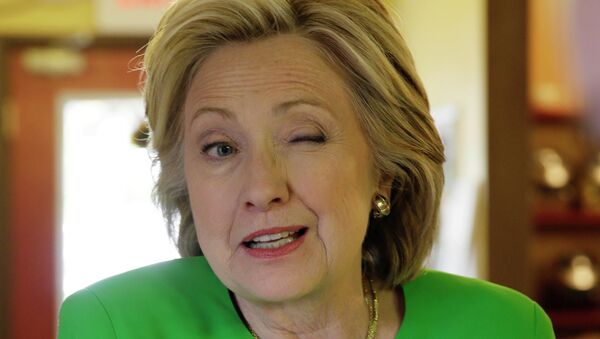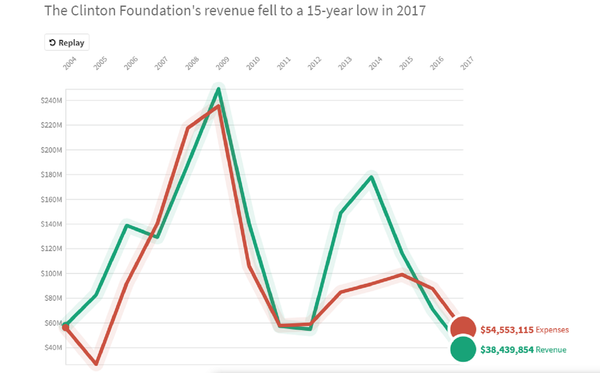Mark Meadows (R-NC), the chairman of the House Oversight and Government Reform Subcommittee on Government Operations, a powerful investigative team for the House of Representatives, began the hearing by expressing his concern over reports of a massive drop in donations to the Clinton Foundation after the former secretary lost her bid for the White House.
The Center for Responsive Politics reported yesterday that the charity's cash flow "nosedived to a 15-year low" following the results of the 2016 election. The foundation pulled in some $38.4 million in 2017, compared to $249 million in 2009, Clinton's first year as Secretary of State, and $62.9 million in 2016. That's a 58 per cent decline in one year.
Last week, Meadows told Fox News that three whistleblowers have come forward with hundreds of pages of documents exposing potential wrongdoing by the foundation, including a pay-to-play relation with donors and misappropriated funds. "Pay-to-play" refers to the idea that donors would send money to the Clinton Foundation in exchange for favours from Hillary Clinton's State Department.
"Several reports suggest that the decrease in donations could reflect a 'pay to play' activity in the years prior to the decline in donations," Meadows said.
"There's a lot of information that's not being disseminated, and I think this is a travesty," whistleblower Brad Birkenfeld told Radio Sputnik's Loud & Clear.
Around 2007, Birkenfeld blew the whistle on an international money laundering scheme run out of the banking giant UBS. "When I was at UBS, of course, there was a lot of clients who had illegal offshore money that were actually giving donations to the Clinton Foundation and the Clinton campaign."
"I mentioned this years ago, and I was rebuked on that, so it's quite troubling," Birkenfeld told Loud & Clear hosts John Kiriakou and Brian Becker.
But when lawmakers sought to have US Attorney John Huber, the prosecutor assigned to probe the foundation, testify on Thursday, they found themselves stonewalled.
"Mr Huber was asked to join us this afternoon and update the committee on the operations and progress of his investigation, and unfortunately, DOJ has been unwilling to make him available," Meadows said.
Meanwhile, one whistleblower who sent documents detailing fraud at the foundation to congressional oversight committees had his home raided by sixteen FBI agents last month.
Senator Chuck Grassley sent a letter to the FBI asking them to explain why the source was not protected as a whistleblower under federal law, giving them until December 12 to respond — a deadline that the bureau missed.
"The first thing is, the FBI is suspect here. The biggest problem here is that they're part of the problem, not part of the solution," Birkenfeld said. "The second thing here is they have a long history of screwing up cases, destroying evidence, lying under oath," he said, adding, "That's the environment we're in."
"More importantly, this person has gone out of his way to not only risk his career but to expose what was going on," Birkenfeld said.
The whistleblower, identified as Dennis Nathan Cain, told the Daily Caller that the FBI agent who led the raid on his home said that Cain possessed stolen property.
"If there was something really illegal about him holding these documents, why would he go to his own congressional committees that have oversight in this issue?" Birkenfeld asked. "I think the problem here is that obviously they're being exposed for covering it up."




